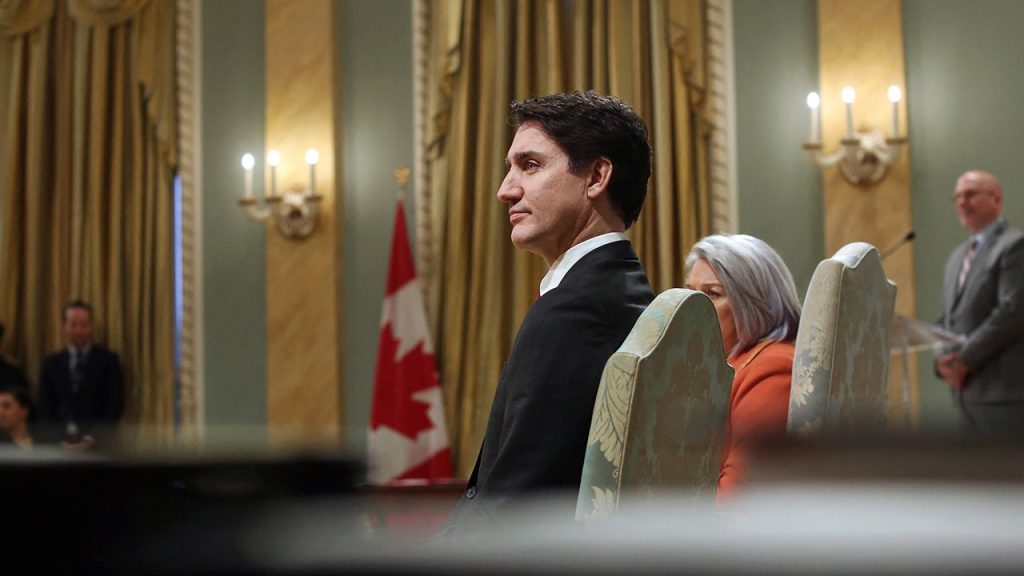Canadian Prime Minister Justin Trudeau is expected to resign from his position amid declining popularity and mounting challenges facing the country. The potential resignation comes as Trudeau’s approval rating sits at a low 28%, with a disapproval rate of around 68%. The country is currently grappling with a housing crisis, declining per-capita GDP, high inflation, and other issues. Trudeau’s possible resignation would coincide with a national election planned for October 20 of this year.
Trudeau has faced significant political challenges in recent months, including a no-confidence vote in parliament that failed to remove him from office. Finance Minister Chrystia Freeland also announced her resignation from the cabinet, citing differences with Trudeau on the best path forward for Canada. The resignation dealt a blow to the prime minister, as Freeland was seen as a loyalist. A key ally, New Democratic Party leader Jagmeet Singh, has indicated plans to present a formal motion of no-confidence in the future, signaling further unrest within Trudeau’s government.
Trudeau’s personal choices have also come under scrutiny, with critics pointing out his attendance at a Taylor Swift concert in Toronto while a destructive riot took place in Montreal. The prime minister was criticized for appearing insensitive to the situation, with calls for him to prioritize law and order in Canada. Despite the backlash, Trudeau later condemned the violence of the riot, describing it as “appalling.” The prime minister’s actions have faced backlash from both opponents and allies, raising concerns about his leadership in the face of mounting challenges within the country.
The Globe and Mail first reported Trudeau’s expected resignation, although the exact timing remains uncertain. The decision is anticipated to occur before a national caucus meeting on Wednesday, further adding to the political turmoil in Canada. The potential resignation follows months of difficulty for Trudeau, who has been navigating various crises and challenges in government. As Trudeau mulls stepping down, the country prepares for a national election later in the year, which will have significant implications for the future of Canadian politics.
Trudeau’s resignation would mark a significant development in Canadian politics, as the country grapples with economic challenges and political unrest. The prime minister’s leadership has come under increasing scrutiny, with his handling of various crises drawing criticism from both allies and opponents. As Trudeau faces pressure to step down, the future of the Liberal Party and Canadian government remains uncertain. The coming weeks will be crucial in determining the political landscape in Canada, as the country navigates a period of transition and change in leadership.
Overall, Trudeau’s expected resignation reflects a broader trend of political turmoil and uncertainty in Canada. The prime minister’s declining popularity, coupled with economic challenges and internal dissent within his government, has created a volatile political environment. As Trudeau prepares to step down, the focus now shifts to the upcoming national election and the potential implications for the future direction of Canadian politics. The resignation of Trudeau will undoubtedly shape the political landscape in Canada in the months to come, as the country grapples with a changing leadership and uncertain future.













